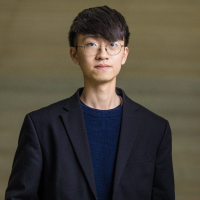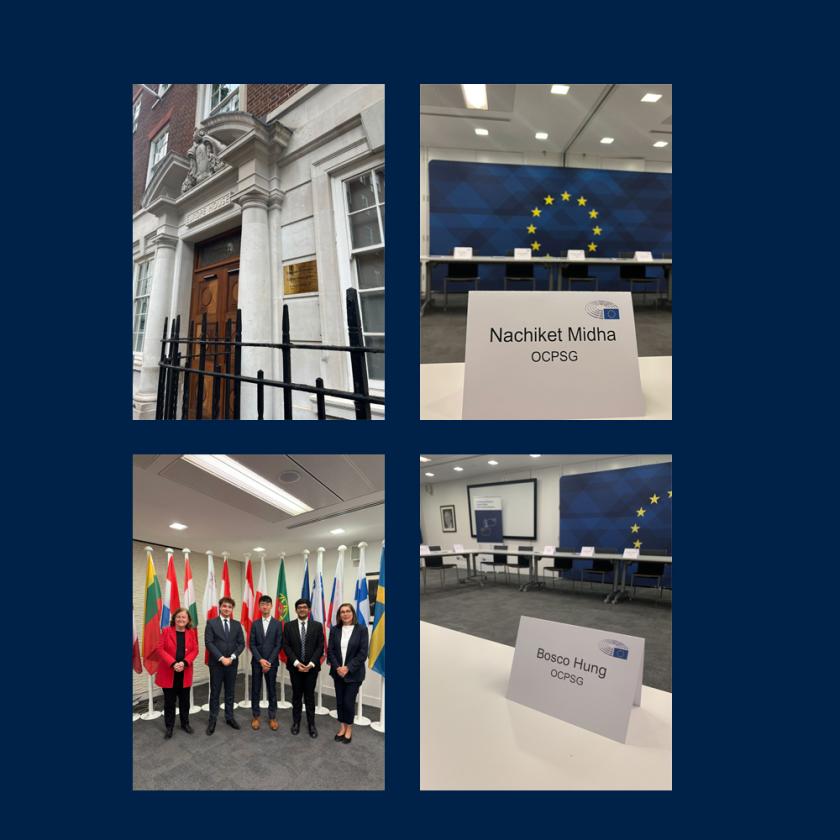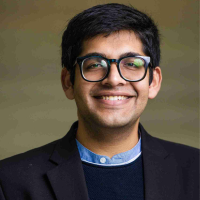Ho Ting Hung
Bosco is an MPhil Candidate in International Relations at the University of Oxford (St Anne’s College). He graduated with a BSc in Politics and International Relations (first class honours) from the London School of Economics and Political Science (LSE), where he studied on a full scholarship and wrote his dissertation on China's cyber sovereignty and AI governance visions using a machine learning approach.
At Oxford, he co-founded the Oxford Computational Political Science Group, a non-partisan research initiative dedicated to advancing the study and application of computational methods in political science and supported by the Department of Politics and International Relations. He was recently invited to speak to the European Parliament's Special Committee on the European Democracy Shield Mission to the UK about disinformation and media literacy. He is also working as a Graduate Research Assistant at the European Studies Centre (St Antony’s College) on a project focusing on the mutual perceptions and relations between China, the US, and other major countries with Europe, a Laboratory Assistant at the Nuffield Centre for Experimental Social Sciences (CESS), a Theme Section Editor at St. Antony's International Review (STAIR), a Fellow at the Oxford China Policy Lab, and a Research Associate at the Future Impact Group (Oxford Group on AI Policy), where he is working with the OECD to deliver research on AI safety and is co-authoring another paper on risk-tier frameworks for advanced AI systems with the Oxford Martin AI Governance Initiative.
Outside of Oxford, besides having co-founded a think tank Protopia Group, he is a Researcher at the International Team for the Study of Security Verona where he delivered research on the rise of extremism to members of the US Department of State, USAID, and FBI. He has also held research positions at numerous academic associations and geopolitical consultancies, such as the Nicholas Spykman International Center for Geopolitical Analysis, the Global Studies Institute in Hong Kong, and London Politica. He has been interviewed by France 24, Al Jazeera, and Asharq News to provide geopolitical analyses of China’s political economy, North Korea, and global politics.
During his time at LSE, he served as the President of LSE's international affairs magazine The London Globalist and the Research Director of LSE Undergraduate Political Review, where he organised an international research conference and is now sitting on the board of directors to advise its operation. He also represented LSE to present his research on information operations at the Posters in Parliament.
Awards
- India Conference at Harvard Policy Hackathon 2025 - Finalist (2025)
- Center for International Relations - International Affairs Forum Student Writing Competition - Winner (2023)
- The Embassy of the Republic of Korea in the UK and the Peaceful Unification Advisory Council - The 3rd University Student Peace in Korea Essay Competition – Hope Prize (2022)
Research Interests
- Sino-US relations
- Chinese politics
- International political economy
- Computational social science
- Emerging technology
- Information warfare
Language
- Cantonese (Native)
- English (Fluent)
- Mandarin (Fluent)
- French (Elementary)
- Korean (Beginner)

Publications
Research Publications and Reports
- Hung, H. T. (2025). Exploring China’s cyber sovereignty concept and artificial intelligence governance model: a machine learning approach. Journal of Computational Social Science, 8, Article 25.
- Hung, H. T. (2025). Multilateral cooperation in building critical infrastructure security and resilience: case of American deterrence of Chinese cyberthreats. Journal of Cyber Policy.
- Hung, H. T. (2024). Country Report: France. In M. Groppi, I. Senfter & S. M. Girón (Eds.), The Rise of the Far-Right in Europe: Mapping Groups, Narratives, and Trends in Europe’s Far-Right Landscape (pp. 15-26). ITSS Verona.
- Lam, M. H. A., & Hung, H. T. (2024). Comparative Analysis of the Undergraduate Political Science Research Methodology Course Syllabi among Hong Kong Universities. Journal of Political Science Education, 20(4), 1-30.
- Hung, H. T. (2022). Keep your eyes on China’s Metaverse: Another Tool for Maintaining its National Security. The Journal of Intelligence, Conflict, and Warfare, 5(2), 1-31.
Hung, H. T. (2022). Distorting Your Perception of Russia’s Aggression: How can We Combat Information Warfare? Connections: The Quarterly Journal, 21(3), 37-61.
Analysis (in English)
- Hung, H. T. (2025, April 29). Breaking Down AI Safety: Why Focused Dialogue Matters. Tech Policy Press.
Hung, H. T. (2024, July 15). On the horns of a dilemma, again! China’s uncomfortable position in the Moscow-Pyongyang Cooperation. ITSS Verona.
Analysis (in Chinese)
- Hung, H. T. (2024, July 9). The United States and France are facing political chaos. Can the new Labor government take the opportunity to restore Britain's global status? [美法面臨政治亂局,工黨新政府能否藉機重振英國全球地位?]. The News Lens.
- Hung, H. T. (2023, March 27). Why is French pension reform deadlocked? What mistakes did Macron make? [法國退休金改革為何是死局?馬克龍犯了什麼錯?]. Initium Media.
- Hung, H. T. (2023, March 23). The Brutal Wagner Group: The Mercenary Who Was Sacrificed by Putin? Can International Sanctions Address Its Rise? [瓦格納集團的兇殘之路:被普丁犧牲的送死傭兵?國際能否制裁打擊?]. UDN.




